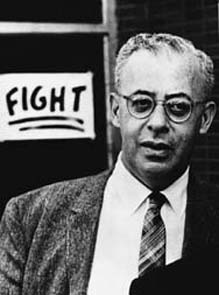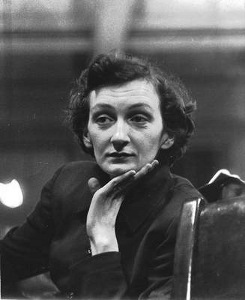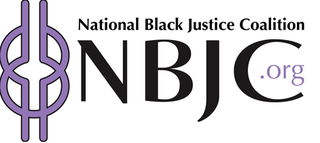
Saul David Alinsky was an American community activist and political theorist. His work through the Chicago-based Industrial Areas Foundation helping poor communities organize to press demands upon landlords, politicians, economists, bankers and business leaders won him national recognition and notoriety. Responding to the impatience of a New Left generation of activists in the 1960s, Alinsky – in his widely cited Rules for Radicals: A Pragmatic Primer (1971) – defended the arts both of confrontation and of compromise involved in community organizing as keys to the struggle for social justice.

Ella Josephine Baker was an African-American civil rights and human rights activist. She was a largely behind-the-scenes organizer whose career spanned more than five decades. In New York City and the South, she worked alongside some of the most noted civil rights leaders of the 20th century, including W. E. B. Du Bois, Thurgood Marshall, A. Philip Randolph, and Martin Luther King Jr. She also mentored many emerging activists, such as Diane Nash, Stokely Carmichael, and Bob Moses, as leaders in the Student Nonviolent Coordinating Committee (SNCC).
The United Nations defines community development as "a process where community members come together to take collective action and generate solutions to common problems." It is a broad concept, applied to the practices of civic leaders, activists, involved citizens, and professionals to improve various aspects of communities, typically aiming to build stronger and more resilient local communities.

Social movement unionism (SMU) is a trend of theory and practice in contemporary trade unionism. Strongly associated with the labour movements of developing countries, social movement unionism is distinct from many other models of trade unionism because it concerns itself with more than organizing workers around workplace issues, pay and terms and conditions. It engages in wider political struggles for human rights, social justice and democracy. Social movement unionism grew out of political struggles in developing countries and was theorized as a distinct industrial relations model in the late 1980s and early 1990s.

Anne McCarty Braden was an American civil rights activist, journalist, and educator dedicated to the cause of racial equality. She and her husband bought a suburban house for an African American couple during Jim Crow. White neighbors burned crosses and bombed the house. During McCarthyism, Anne was charged with sedition. She wrote and organized for the southern civil rights movement before violations became national news. Anne was among nation's most outspoken white anti-racist activists, organizing across racial divides in environmental, women's, and anti-nuclear movements.
Founded in 1994, Alternatives, Action and Communication Network for International Development, is a non-governmental, international solidarity organization based in Montreal, Quebec, Canada.
Community building is a field of practices directed toward the creation or enhancement of community among individuals within a regional area or with a common need or interest. It is often encompassed under the fields of community organizing, community organization, community work, and community development.
TransAfrica is an advocacy organization in Washington, D.C. that seeks to influence the foreign policy of the United States concerning African and Caribbean countries and all African diaspora groups. They are a research, education, and advocacy center for activism focusing on social, economic and political conditions in Africa, the Caribbean, and Latin America and other parts of the African Diaspora. They are the largest and oldest social justice organization in the United States that focuses on the African world. They have served as a major research, educational, and organizing institution for the African and African Descendant communities and the U.S. public in general.
Connexions is the central online library and archive for Canada's movements for social change. The non-profit project also maintains a comprehensive directory of Canadian associations and NGOs.

Jewish Council on Urban Affairs (JCUA) is a nonprofit organization based in Chicago that mobilizes the Jewish community of the region to advance racial and economic justice. JCUA partners with diverse community groups across the city and state to combat racism, antisemitism, poverty and other forms of systemic oppression, through grassroots community organizing, youth education programs, and community development.
Mary Brown Williams Ledbetter, better known as Brownie Ledbetter, was a political activist, social justice crusader and lobbyist who was involved in the civil rights, feminist, labor and environmental movements in Arkansas, United States and abroad.
Joseph DeFilippis is an American gay-rights and anti-poverty activist, who has served as executive director of two non-profit organizations and worked as a teacher, community organizer and public speaker. He is best known as the founder of Queers for Economic Justice.

Ai-jen Poo is an American labor activist. She is the president of the National Domestic Workers Alliance. She is also the director of Caring Across Generations, a national coalition of 200 advocacy organizations working to transform the long-term care system in the US, with a focus on the needs of aging Americans, people with disabilities, and their caregivers.

The National Black Justice Coalition (NBJC) is an American civil rights organization serving primarily Black lesbian, gay, bisexual, and transgender (LGBT) people. Since 2003, NBJC has collaborated with national civil rights groups and LGBT organizations, advocating for the unique challenges and needs of the African American LGBT community in the United States.
Maria Varela is a Mexican-American civil rights photographer, community organizer, a writer, and a teacher. She has been actively involved in Civil Rights movements, advocating rights for indigenous communities and protects cultural heritage within African-American, Native-American, and Mexican-American in rural communities. She created and supported several non-profits organizations to help many minority groups, especially Native-American and Mexican-American. She won a MacArthur Fellowship in 1990 for her endeavor to help with the Native-American communities in northern New Mexico, southern Colorado, and northeastern Arizona to develop economic opportunities and preserve their human rights.
Project South: Institute for the Elimination of Poverty and Genocide is a non-profit organization based in Atlanta, Georgia that incorporates sociological research into education and organizing projects. Project South focuses on developing activist strategies in response to social issues in the Southern region of the United States. The organization was founded in 1986 by Jerome Scott and Walda Katz-Fishman.
Carl Anthony is an American architect, regional planner, social justice activist, and author. He is the founder and co-director of Breakthrough Communities, a project dedicated to building multiracial leadership for sustainable communities in California and the rest of the nation. He is the former President of the Earth Island Institute, and is the co-founder and former executive director of its urban habitat program, one of the first environmental justice organizations to address race and class issues.
Marian Kramer is a civil rights, poverty, and labor activist based in Detroit, Michigan.

Yvonne V. Delk is a leader within the United Church of Christ (UCC), a Christian educator and social justice advocate. She was the first Black woman ordained in the United Church of Christ, and the second woman to hold a national leadership role in the denomination, serving as the head of the Office for Church and Society. She later served as executive director of the Community Renewal Society, an organization focused on issues of racism and poverty in Chicago. In this role, she addressed issues of homelessness, poverty, systemic racism, community health and affordable housing. She was the first woman and person of color to lead the organization. In 1997, Delk was recognized by Ebony as one of the top fifteen Black woman preachers in the US.







